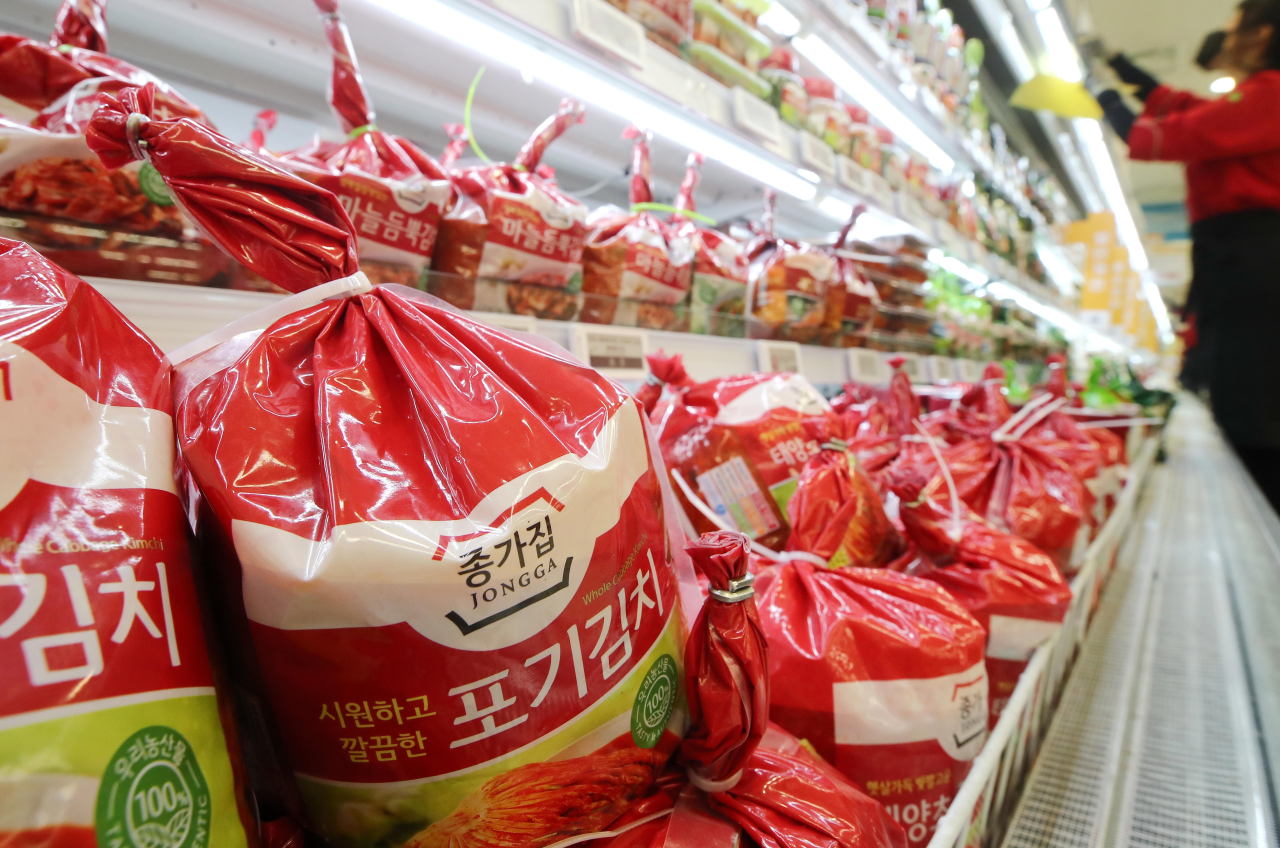 |
Packaged kimchi is displayed on the shelves of a discount store in Seoul, Oct. 12. (Yonhap) |
Seven out of 10 restaurants in South Korea serve kimchi made in another country, said a local research institute in a report released Thursday.
According to the Korea Foodservice Research Institute, which looked into the country of origin of food ingredients used at 976 restaurants across the country, 40 percent of the surveyed use kimchi made outside of Korea.
Another 28 percent use both locally made and imported kimchi while 31.2 percent stick to Korean made kimchi.
Most of the imported kimchi came from China, the report said.
“Locally produced kimchi is usually triple the price of imported kimchi, but there are restaurants that serve Korean made kimchi to satisfy customer needs,” said Lee Kyung-mi, the principle researcher at the institute.
Previously in March, a local broadcaster aired a footage presumed to be taken at a kimchi-processing factory in China which shows a naked man waist deep in a pool of brown liquid filled with pickled cabbages. The footage triggered concerns among the Korean public over the safety of kimchi made from China.
By restaurant type, Chinese restaurants were the most frequent users of foreign made Kimchi, with 76.5 percent of the kimchi they use coming from overseas.
Casual dining locations like kimbap shops came in second place with 58.1 percent. Western food joints and Japanese restaurants followed, each with 47.1 percent and 29.9 percent, respectively.
Restaurants that serve Korean food was the least likely to use imported kimchi, accounting for 25.3 percent.
Franchise businesses and restaurants that focus on deliveries were more likely to use imported kimchi than others, according to the report.
By business size, small establishments tend to serve imported kimchi more frequently that its bigger counterparts.
44.6 percent of establishments with less than 19 seats said they used imported kimchi. That ratio was 30.1 percent among locations with more than 50 seats.
The study urged the government provide financial subsidies to restaurants that use Korean made kimchi, especially when cabbage prices surge from unexpected weather conditions.
This could encourage more locations to use locally sourced kimchi and eventually help South Korea’s shrinking agriculture industry, the report argued.
“(Government subsidies) could encourage more restaurants to use Korean kimchi, lift some of the cost burden of those who already use Korean kimchi and ultimately (help the country) maintain a steady demand of agricultural goods,” Lee added.
By Kang Jae-eun (
kang.jaeeun@heraldcorp.com)








